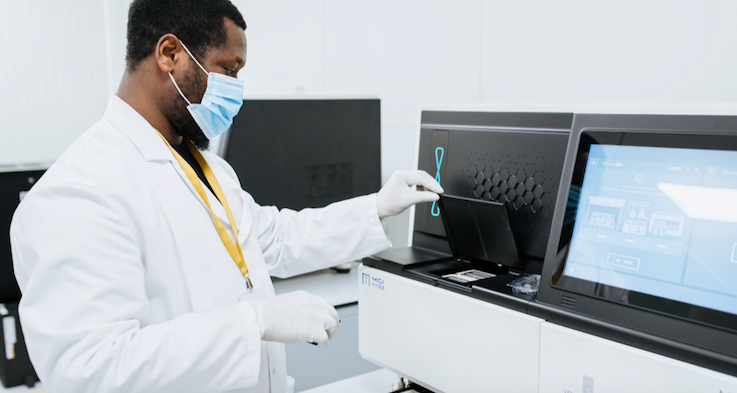Private equity investments rise by 137% in Indian life science
12 November 2012 | Analysis | By BioSpectrum Bureau
Private equity investments rise by 137% in Indian life science

Private equity investments surge substantially in India
The private equity (PE) investments in the Indian life sciences sector, during 2012 (from January until date), recorded a 137 percent growth as compared to that during the last year. According to Venture Intelligence, a Chennai-based research firm, the health and life sciences industry has already received investments worth of $268 million in 2012 as compared to $113 million from 12 deals in 2011. Out of the 15 deals of 2012, top four deals account for $198 million, with the $60 million investment from Equity Partners Fund in Avesthagen, leading at the top of the table.
The surge in investments in the life sciences industry is attributed to the prevailing opportunities in healthcare, drug discovery space, medical devices, and personalized medicine space. Sharing her views on the opportunities, Ms Padmaja Ruparel, president, Indian Angel Network, pointed out, "The abysmal state of healthcare in the country (till a few years ago) provided an opportunity to the entrepreneurs to address the unmet needs. Further, as the bottom of the pyramid comprises of almost two-thirds of population, it provides an opportunity to build products of global quality at Indian prices. This offers vast opportunities to create fast growing ventures, jobs, and wealth and also drive economic growth."
Agreeing to the fact that there is an upsurge in investments in the life sciences sectors, Mr Ashwin Raguraman, vice president, India Innovation Fund, said that, "I think this upsurge is also visible in other sectors such as ICT and further, it is not just the quantity of start-ups, but encouragingly a qualitative improvement in the start-ups and the maturity of their offerings that are emerging in these sectors."
The reasons are common across these sectors. Mr Raguraman elaborated, "There is an entire generation of individuals who went to the West to study and work and have returned in large numbers to India in the last five years armed with global outlook, practices and ideas. Many of them have ventured into entrepreneurship, as the opportunities offered by the large firms often don't measure up to their competence."
"There is also a new breed of entrepreneurs, who are emerging from large corporate, with a deep domain understanding. They understand the gaps in the solution offerings and are willing to provide niche solutions. The third category, yet emerging, is a set of academics, who are converting years of research into business applications and building firms around them. This upsurge is encouraging and, with right enablers, can lead to a whole new breed of companies that will emerge from India," he added.
Cautious, but optimistic
The life science sector is currently very nascent and companies are still catering to basic needs. Clinical research and drug research are yet to take off. Ms Ruparel is now confident that India will not only see many more healthcare companies sprout here in the next five years, but it will also move up the value chain. Healthcare, generally, is among the top three promising sectors that angel investors consider as an opportunity. The number of start-ups is gradually increasing.
"The medical device companies attract the largest chunk of angel investments, far more than the pharmaceuticals, drugs and biotechnology start-ups. This sector is considered to be high risk and a high return one," explained Ms Ruparel. This space looks promising.
There are a good number of start-ups in drug discovery, platforms and the medical device sectors which are founded by world class entrepreneurs. "Nonetheless, the Indian market is still a few years away from maturity, and therefore what we are likely to see are global plays. The much touted reverse innovation paradigm is therefore constrained by the lack of an easily addressable domestic market. Further, the regulatory environment is nascent. While that may not be a concern in the short-term, it will in the long run hurt companies which are looking to expand globally," added Mr Raguraman.
The venture capital community is extremely jittery about the prevailing drug control regulatory system in the country where companies (involved in drug discovery and clinical research) are facing considerable delays of over several months and in some instances over a year in receiving regulatory approvals.
"These delays have not just been for clinical trials but also for manufacturing licenses. These inordinate delays and lack of funding support are killing innovation and drug discovery business in the country significantly hurting the growth of the biotech sector. The concerned government agencies need to address these issues on a priority basis to bring back the investor confidence," reiterated Mr Nitin Deshmukh, CEO, Kotak Private Equity Group.
According to Mr Utkarsh Palnitkar, managing director, Pluripotent Capital, and executive director, Centrum Capital, the primary challenge is in finding enterprises that can scale up in a reasonable period of time. "Valuation expectation of mature enterprises is another barrier to deal making. Finding viable exit routes is another problem. This is accentuated in the healthcare space, where individual units may show healthy profits and yet offer very limited exit options to investors given their individual size," he said.
The healthcare and life sciences industry is reckoned to be the engine of India's economic growth. "There is a lot of interest that appears to be building in the global investor community in the Indian healthcare and life sciences sectors, and there is going to be a significant amount of capital that will follow the companies that manage to solve the challenges and develop a unique proposition applicable in a global context. Therefore the potential for strong exits is high, be it through secondary sales or through acquisitions," said Mr Raguraman.
"ChrysCapital that made two investments in less than 12 months believes in the Indian life sciences story and will continue to make investments," concluded Mr Sanjiv Kaul, managing director, ChrysCapital Advisors.












